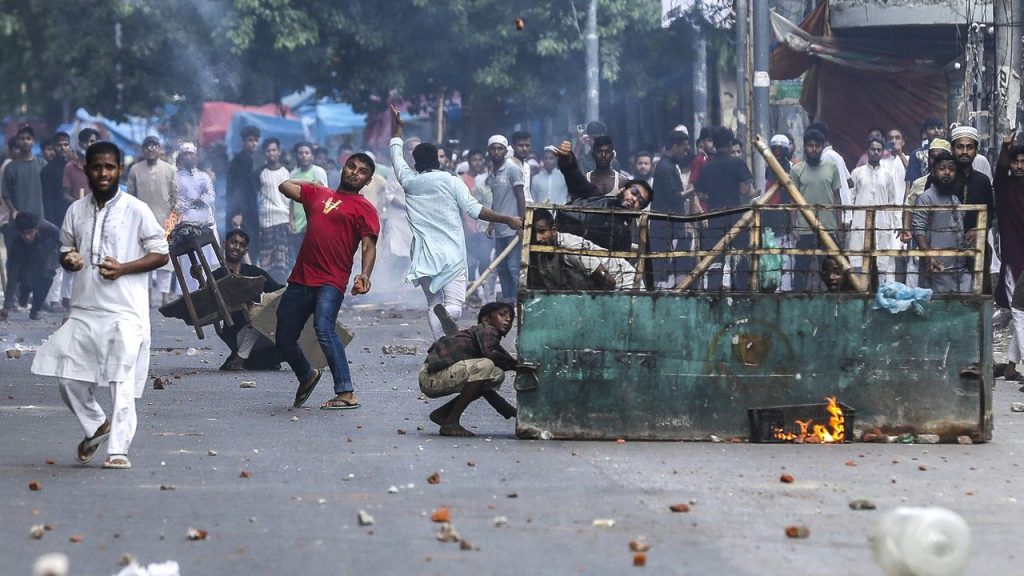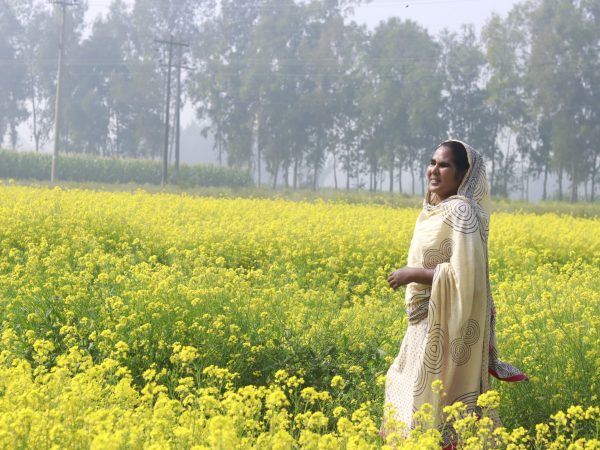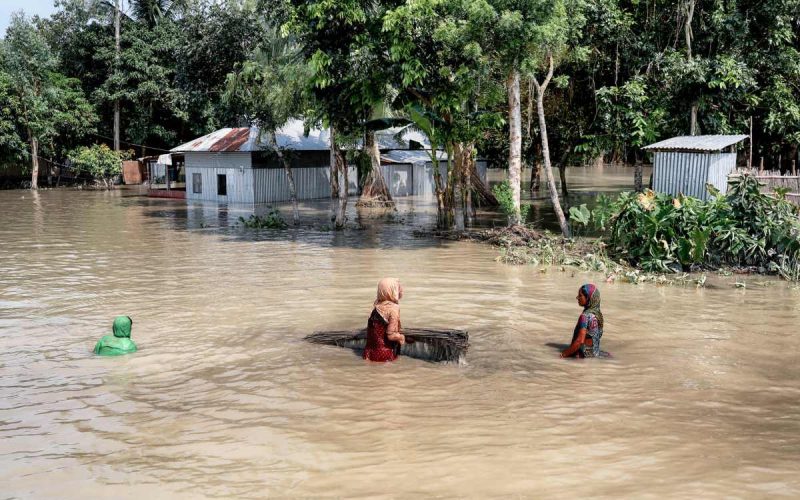News The situation in Bangladesh
2024 has so far been a year full of climate and politics related problems in Bangladesh. The new year started with elections.
Fake elections because the results were already fixed. The Awami League, led by Prime Minister Sheikh Hasina, ruled Bangladesh since 2009 and began its fourth consecutive term. In the run-up to the elections, opposition leaders and critical journalists were detained. The tensions led to violent protests.
In April and May, Bangladesh was hit by a severe heat wave with temperatures ranging from 44 to 46 degrees. Schools closed their doors, harvests failed and the electricity supply was cut off in rural areas, so air conditioners could run at full blast in the capital. Without a fan, it was unbearable in a corrugated iron house. Children fell ill, developed headaches, an increased heart rate and became unconscious, which resulted in the death of three children in our project. The extreme heat that lasted for weeks was followed by a period of extreme rainfall, in June, July and August, which resulted in extensive flooding. In Dhaka, streets were completely flooded. In the north of the country there was severe flooding, and in the east there were landslides. Our project area was only affected by extensive flooding.
In this kind of extreme weather, it is very difficult for some parents to attend our program. When it is hot, traveling with a vulnerable child with disabilities is too exhausting and too dangerous, and in heavy rain, walking on the slippery muddy paths is difficult, public transport is crowded and many accidents happen on the roads. On top of that, every effort must be made at home to save the crops that can be saved in the fields.
Student protests
In July, student protests broke out. The government announced that the number of government jobs reserved for freedom fighters (and their (grand)children) from the 1971 war of independence would be increased. This would mean that a third of the government jobs would go to people who are already privileged in Bangladesh. Students tried to use peaceful protests to get the high court to review whether the adjustment could be implemented. However, these protests escalated completely and the police were ordered to stop the protests using violence, which resulted in over 600 deaths. The country went in lockdown, there was a curfew, no internet and random people were arrested, raped or shot. By now the protests had long ceased to be about the job quota. There was growing dissatisfaction with police brutality, declining economic growth, high food prices and autocratic rule. Students continued to demonstrate and more and more people joined them. The cry for change and the resignation of the prime minister resulted in Prime Minister Sheikh Hasina stepping down and fleeing on August 5.

Bron AFP
With the appointment of an interim government, led by Nobel laureate Mohammad Yunus, peace and quiet has returned, but it is still very unclear which direction Bangladesh will take. The students do not want former governments or any of the current opposition parties to come to power. They do not want to be ruled by fundamentalists or another autocrat. They want a new free Bangladesh.
Our centers are open again and where possible parents are coming back to our centers with their children.



